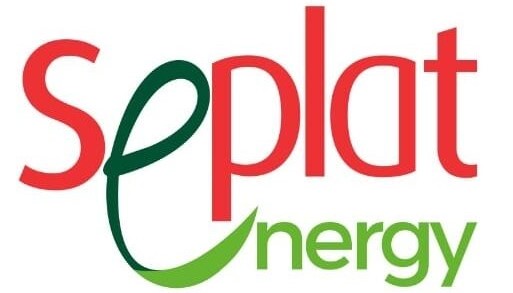

NBS: You'll pay N703 as Average Cost for a Healthy Diet in Nigeria

The National Bureau of Statistics (NBS), says the national average Cost of a Healthy Diet was ?703 in October 2023.
Adeyemi Adeniran, the Statistician-General of the Federation, and Chief Executive Officer of the NBS, said this at the unveiling of �The Cost of a Healthy Diet (CoHD)� Indicator Report in Abuja on Wednesday.
Adeniran said that the Indicator was produced in collaboration with the Global Alliance for Improved Nutrition (GAIN), Federal Ministries of Budget and Economic Planning, Health and Social Welfare and Agriculture and Food Security.
Adeniran said that the CoHD was the least expensive combination of Locally Available Items that meet Globally consistent Food-Based Dietary Guidelines, used as a measure of Physical and Economic access to Healthy Diets.
�This is a lower bound (or floor) of the Cost per Adult per day excluding the Cost of Transportation and Meal preparation.�
�The Data for this Indicator is derived from the comprehensive Food Price Data, a key component used in calculating the Inflation Rate.
�This Indicator will provide invaluable insights into the current State of Nutrition and Affordability across the Nation.�
He said in October 2023, the Average CoHD was highest in the South-East at ?918 per Adult per day, compared to ?605 per Adult per day in the North-East, which was the lowest.
At the State Level, the Report showed Anambra, Ebonyi, and Enugu recorded the highest cost at N950, N933, and N915, respectively.
�While the lowest Total Diet Costs were recorded in Niger, Adamawa, and Bauchi at N544, N545, and N560, respectively. �
However, Adeniran said in November 2023, the Report showed the National Average Cost of a Healthy Diet was ?742.
�Also, the Average CoHD was highest in the South-East at ?920 per Adult per day, compared to ?616 per Adult per day in the North-East, in November 2023.�
At the State Level, the Report showed Anambra, Ogun, and Ebonyi, recorded the highest Cost at N965, N939, and N937, respectively.
�While the lowest Total Diet Costs were recorded in Bauchi, Adamawa, and Niger at N550, N562, and N572, respectively. �
�Also, in December 2023, the National Average Cost of a Healthy Diet was ?786.
�The Average CoHD was highest in the South-West at ?979 per Adult per day, compared to ?663 per Adult per day in the North-West.�
At the State Level, the Report showed Ekiti, Osun, and Ondo recorded the highest Cost at N1,052, N1,017, and N986, respectively.
�While the lowest Total Diet Costs were recorded in Katsina, Niger, and Adamawa at N594, N635, and N654, respectively. �
Adeniran said Animal Food Sources were the most expensive Food Group recommendations to meet in the three months reported,
This he said accounted for 38 per cent of the total CoHD in October and December and 39 per cent in November.
He said Fruits and Vegetables were the most expensive Food Groups in terms of Price per Calories for the three months, while the least expensive Food Group on average was Legumes, Nuts, and Seeds at six per cent of the Total Cost.
�In recent months, the CoHD had risen faster than General Inflation and Food Inflation,� Adeniran said.
However, the Statistician-General said the CoHD and the Food Consumer Price Index (CPI) were not directly comparable.
�The CoHD includes fewer Items and is measured in Naira per day, while the food CPI is a Weighted Index.�
Adeniran said the Retail Food Price Data in the analysis was collected by the NBS Monthly from 10,534 Informants spread across the Country from Urban and Rural Outlets for each State.
News in Pictures
Nigeria's Inflation Rate reaches 31.70% in February 2024, says NBS

The National Bureau of Statistics (NBS), says Nigeria�s Headline Inflation Rate increased to 31.70 per cent in February 2024.
The NBS said this in its Consumer Price Index (CPI) and Inflation Report for February, which was released in Abuja on Friday.
According to the Report, the figure is 1.80 per cent points higher compared to the 29.90 per cent recorded in January 2024.
It said on a Year-on-Year Basis, the Headline Inflation Rate in February 2024 was 9.79 per cent higher than the Rate recorded in February 2023 at 21.91 per cent.
In addition, the Report said on a Month-on-Month Basis, the Headline Inflation Rate in February 2024 was 3.12 per cent, which was 0.48 per cent higher than the Rate recorded in January 2024 at 2.64 per cent.
�This means that in February 2024, the rate of increase in the Average Price Level is more than the rate of increase in the Average Price Level in January 2024.��
The Report said the increase in the Headline Index for February 2024 on a Year-on-Year Basis and Month-on-Month Basis was attributed to the increase in some items in the basket of Goods and Services at the Divisional Level.
It said these increases were observed in Food and Non-Alcoholic Beverages, Housing, Water, Electricity, Gas, Fuel, Clothing and Footwear, and Transport.
Others were Furnishings, Household Equipment and Maintenance, Education, Health, Miscellaneous Goods and Services, Restaurants and Hotels, Alcoholic Beverage, Tobacco and Kola, Recreation and Culture, and Communication.
It said the percentage change in the Average CPI for the 12 months ending February 2024 over the Average of the CPI for the previous corresponding 12-month period was 26.18 per cent.
�This indicates a 6.31 per cent increase compared to 19.87 per cent recorded in February 2023.�
The Report said the Food Inflation Rate in February 2024 increased to 37.92 per cent on a Year-on-Year Basis, which was 23.57 per cent higher compared to the Rate recorded in February 2023 at 24.35 per cent.
�The rise in Food Inflation on a Year-on-Year Basis is caused by increases in Prices of Bread and Cereals, Potatoes, Yam and other Tubers, Fish, Oil and Fat, Meat, Fruit, Coffee, Tea, and Cocoa.��
It said on a Month-on-Month Basis, the Food Inflation Rate in February was 3.79 per cent, which was a 0.58 per cent increase compared to the Rate recorded in January 2024 at 3.21 per cent.
�The rise in Food inflation on a Month-on-Month basis was caused by an increase in the Average Prices of Bread and Cereals, Potatoes, Yam and other Tubers, Fish, Coffee, Tea, and Cocoa.��
The Report said that �All Items less Farm Produce and Energy�� or Core Inflation, which excludes the Prices of Volatile Agricultural Produce and Energy, stood at 25.13 per cent in February on a Year-on-Year Basis.
�This increased by 6.76 per cent compared to 18.37 per cent recorded in February 2023.��
�The exclusion of the PMS is due to the deregulation of the Commodity by removal of Subsidy.��
It said the highest increases were recorded in Prices of Passenger Transport by Road, Actual and Imputed Rentals for Housing, and Medical Services, Pharmaceutical Products, etc.
The NBS said on a Month-on-Month Basis, the Core Inflation Rate was 2.17 per cent in February 2024.
�This indicates a 0.07 per cent drop compared to what was recorded in January 2024 at 2.24 per cent.�
�The Average 12-month Annual Inflation Rate was 21.17 per cent for the 12 months ending February 2024, this was 4.97 per cent points higher than the 16.75 per cent recorded in February 2023.�
The Report said on a Year-on-Year Basis in February 2024, the Urban Inflation Rate was 33.66 per cent, which was 10.87 per cent higher compared to the 22.78 per cent recorded in February 2023.
�On a Month-on-Month Basis, the Urban Inflation Rate was 3.17 per cent in February representing a 0.45 per cent increase compared to January 2024 at 2.72 per cent.��
The Report said on a Year-on-Year Basis in February 2024, the Rural Inflation Rate was 29.99 per cent, which was 8.89 per cent higher compared to the 21.10 per cent recorded in February 2023.
�On a Month-on-Month Basis, the Rural Inflation Rate was 3.07 per cent, which increased by 0.50 per cent compared to January 2024 at 2.57 per cent.��
On States� Profile Analysis, the Report showed in February all Items Inflation Rate on a Year-on-Year Basis was highest in Kogi at 37.98 per cent, followed by Oyo at 36.60 per cent, and Bauchi at 35.62 per cent.
It, however, said the slowest rise in Headline Inflation on a Year-on-Year Basis was recorded in Borno at 26.28 per cent, followed by Taraba at 26.72 per cent, and Benue at 27.40 per cent.
The Report, however, said in February 2024, all Items Inflation Rate on a Month-on-Month Basis was highest in Kwara at 6.42 per cent, followed by Kebbi at 4.64 per cent, and Adamawa at 4.46 per cent.
�Katsina at 1.93 per cent, followed by Cross River at 1.98 per cent and Benue at 2.33 per cent recorded the slowest rise in Month-on-Month Inflation.�
The Report said on a Year-on-Year Basis, Food Inflation was highest in Kogi at 46.32 per cent, followed by Rivers at 44.34 per cent, and Kwara at 43.05 per cent.
�Bauchi at 31.46 per cent, followed by Plateau at 32.56 per cent and Taraba at 33.23 per cent recorded the slowest rise in Food Inflation on a Year-on-Year Basis.��
The Report, however, said on a Month-on-Month Basis, Food Inflation was highest in Adamawa at 5.61 per cent, followed by Yobe at 5.60 per cent, and Borno at 5.60 per cent.
�While Cross River at 2.08 per cent, followed by Niger at 2.56 per cent and Abuja at 2.60 per cent, recorded the slowest rise in Inflation on a Month-on-Month Basis.�
Credit NAN: Texts excluding Headlines
Comments
Be the first to comment on this post
Leave a Reply
News in Pictures
It's N938 for Healthy Diet per Nigerian Adult in February 2024, says NBS

The National Average Cost of a Healthy Diet (CoHD) per Adult a day stood at N938 in February, 2024, the National Bureau of Statistics (NBS) said in a Report.
The NBS revealed this in its CoHD Report for February, 2024 released on Friday in Abuja.
The Bureau said the CoHD was the least expensive combination of Locally available Items that met Globally consistent Food-Based Dietary Guidelines.
It said it was used as a measure of Physical and Economic access to Healthy Diets.
�This is a lower bound (or floor) of the Cost per Adult per day excluding the Cost of Transportation and Meal Preparation.�
The Bureau said that to compute the CoHD Indicator, the following Data on Retail Food Prices, Food Composition Data, and Healthy Diet Standard were required.
The NBS also said that in February, the Average CoHD was highest in the South-West at N1, 157 per Adult per day, followed by the South-East at N1, 077 per day.
It said the lowest Average CoHD was recorded in the North-West at N723 per Adult per day.
The NBS further said that at the State Level, Ekiti, Lagos, and Osun recorded the highest CoHD at N1, 295, N1, 195, and N1, 184, respectively.
The Bureau said Katsina recorded the lowest CoHD at N673, followed by Sokoto and Zamfara at N714 and N720, respectively.
The Report added that Animal-Source Foods were the most expensive Food Group Recommendation to meet in February, accounting for 38 per cent of the total CoHD to provide 13 per cent of the Total Calories.
It noted that Fruits and Vegetables were the most expensive Food Groups in terms of Price per Calorie.
�They accounted for 12 per cent and 14 per cent, respectively, of the total CoHD while providing only seven per cent and five per cent of Total Calories in the Healthy Diet Basket.
�Legumes, Nuts and Seeds were the least-expensive Food Group on average, at six per cent of the Total Cost.��
The Report also says that in recent months, the CoHD had risen faster than General Inflation and Food Inflation.
�However, the CoHD and the Food Consumer Price Index (CPI) are not directly comparable.
�The CoHD includes fewer Items and is measured in Naira per day, while the Food CPI is a Weighted Index.
�The Food CPI increased approximately by four per cent between January and February, while CoHD increased by nine per cent.��
The NBS said the Policy implications of these Results would foster collaboration among a wide range of Stakeholders, such as Policymakers, Researchers and Civil Society Actors that focus on food security.
�These Stakeholders will devise Strategies that tackle access, availability, and affordability of Healthy Diet effectively.
�Also future Research incorporating Income can also be used to determine the proportion and number of the Population that are unable to afford a Healthy Diet,� the report said.
Credit NAN: Texts excluding Headlines
Comments
Be the first to comment on this post











Comments
Be the first to comment on this post
Leave a Reply